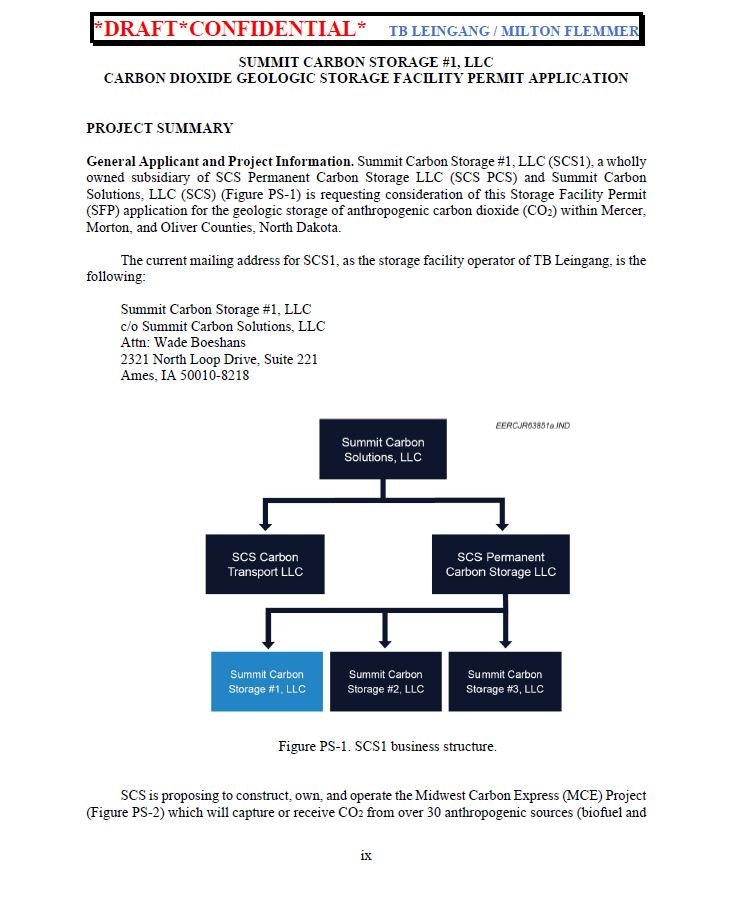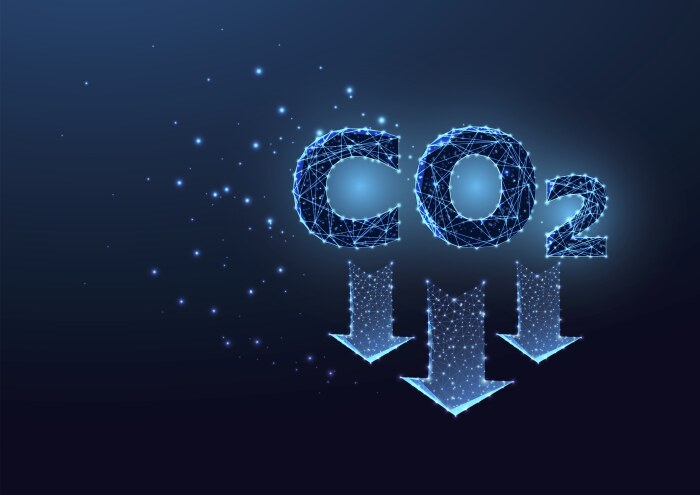Nancy Dugan lives in Altoona, Iowa and has worked as an online editor for the past 12 years.
During the August 15 Director’s Cut webcast, Dr. Lynn Helms, Director of North Dakota’s Department of Mineral Resources, was asked about the Public Service Commission’s August 4 decision to deny Summit Carbon Solutions’ North Dakota pipeline permit.
Helms first explained that the state’s current CO2 production only meets 3 to 10 percent of the need for shale oil recovery in North Dakota. “So carbon dioxide has got to come to North Dakota from somewhere if we’re going to stabilize and sustain Bakken oil production,” he added.
Addressing the state’s long-term need for CO2 for use in oil recovery, Helms commented further:
We’ve got to find a way for carbon capture and utilization to become a part of North Dakota’s economy, or we will leave billions of barrels of oil in the ground. So, not a great decision, I guess, in terms of the potential for problems with transportation of carbon dioxide to the Bakken oil field. And that is going to be, really, a driving force for us, you know, resources, as well as for state government, because there are billions of barrels of oil at stake, and we’ll have to see what kind of proposals come down the line for that.
When asked if the commission’s decision to deny Summit’s North Dakota permit would affect CO2 storage facilities, Helms responded, “We had received a draft application for three storage facilities that were going to store the carbon dioxide that was going to come in from that pipeline. And so, we regulate that area. Undoubtedly, that’s going to be postponed.”
I obtained the three draft applications referenced by Helms through a federal Freedom of Information Act request. Three separate LLCs registered with the North Dakota Secretary of State on July 10, 2023 submitted the applications: Summit Carbon Storage #1, LLC, Summit Carbon Storage #2, LLC, and Summit Carbon Storage #3, LLC.
Although those LLCs were formed in Delaware, their address is 2321 N. Loop Drive, Suite 221, Ames, Iowa, which matches the address of Summit Carbon Solutions. All three applications included the following diagram:

The firms submitted the applications to the Department of Mineral Resources in mid-July. According to research conducted by the Pipeline Fighters Hub, these sites were previously identified by Summit Carbon Solutions in its February 7, 2022, permit application to the South Dakota Public Utilities Commission (p. 27).
The Pipeline Fighters Hub’s extensive research speculates that Summit may have targeted storage sites at a northerly location in North Dakota because of their proximity to the existing Souris Valley 14-inch CO2 pipeline, which “runs from the Dakota [Great Plains] Synfuels Plant to a CO2 EOR operation at the Weyburn oilfield in southern Saskatchewan.” In August 2021, Bakken Energy announced an agreement to purchase the assets of the Dakota Gasification Company, including the Great Plains Synfuels Plant. The Bakken formation extends into the provinces of Saskatchewan and Manitoba in Canada, and also into Montana in the U.S.
“No one is buying buckets of carbon, right?”
Summit Carbon’s January 28, 2022, Petition for Hazardous Liquid Pipeline Permit was accompanied by Exhibit C, which states in part: “The Summit Carbon Solutions Pipeline System (‘Pipeline’) will transport carbon dioxide (“CO2”) from participating ethanol plants in Iowa and other midwestern states to North Dakota for permanent sequestration.”
In his June 23, 2023 deposition, filed with the Iowa Utilities Board (IUB) on August 14, James “Jimmy” Powell, Chief Operating Officer for Summit Carbon Solutions, responded to questions posed by attorney Timothy Whipple, who represents several Iowa counties in the Summit matter (p. 52, lines 5-16):
Q. Let me ask it a different way. You’re not selling the carbon; right?
A. No one is buying buckets of carbon, right? We’re not selling – physically selling the CO2?
Q. Correct.
A. That’s correct.
Q. That’s correct. And the pipeline is physically transporting CO2?
A. That’s correct.
Q. Which is not being directly sold in that form?
A. That’s correct.
In his August 21 rebuttal testimony, Powell responded to the following question (p. 6, lines 13-19):
Q. Certain Intervenors have mentioned the use of CO2 for enhanced oil recovery (“EOR”). Does Summit intend to ship CO2 for use in EOR?
A. No. Summit does not intend to ship CO2 for use in EOR. At present, all parties intending to ship on Summit’s pipeline system intend to permanently sequester the CO2 being shipped.
Gevo’s Iowa State University connections
On February 6, 2023, Summit Carbon Solutions announced the addition of Gevo, Inc.’s Net-Zero 1 plant in Lake Preston, South Dakota to the pipeline route. “Gevo will be making sustainable aviation fuel in Lake Preston, South Dakota,” the Summit Carbon press release stated. “Summit Carbon Solutions plans to capture carbon emissions from the facility.”
According to the press release, Gevo’s Net-Zero 1 plant “will produce about 55 million gallons of sustainable aviation fuel annually and a total 65 million gallons of fuel per year.” Summit Next Gen Holdings, LLC, another Summit Agricultural Group business, also recently announced plans to develop an ethanol to jet (ETJ) sustainable aviation fuel facility, to be built at an unidentified location along the U.S. Gulf Coast.
An October 25, 2022, USDA update documents Gevo’s partner relationships, which include, among others, Stine Seed Farm (p. 4). According to Gevo:
The project aims to create critical structural climate-smart market incentives for low carbon-intensity corn as well as to accelerate the production of sustainable aviation fuel to reduce the sector’s dependency on fossil-based fuel. This project includes an immediate market opportunity to sell climate-smart, low-climate-impact corn.
Stine is listed as a Summit Agricultural Group partner on the Summit website.
In its August 10, 2023, 10-Q: Quarterly report for quarter ending June 30, 2023, filed with the Securities Exchange Commission, Gevo announced that it had entered into an agreement with South-Korea-based chemical giant LG Chem. Like the SK Group, a major Summit Carbon investor, LG Chem is a loosely regulated chaebol. The Violation Tracker website has documented several antitrust and environmental violations by LG Chem.
Page 30 of the August 10 SEC 10-Q reads in part: “In April 2023, Gevo entered into a joint development agreement with LG Chem, Ltd. (‘LG Chem’) a leading global chemical company to develop bio-propylene for renewable chemicals using Gevo’s Ethanol-to-Olefins (“ETO”) technology.”
Gevo has also announced plans to “convert petro-based polyester for fibers and bottles to 100-percent renewable content.”
On May 11, 2022, LG Chem unveiled new technology used to create raw materials for plastics from captured CO2. “With [the] Korea Institute of Science and Technology … LG Chem has developed a technology that makes raw materials for plastics by using carbon dioxide in the air. The Company has now set the stage for commercialization.” Gevo’s website features one request for proposal of particular interest. It is called the Carbon Soil Amendments RFP, and it extensively involves biochar. Page 4 of the RFP includes the following bullet point:
Provide biochar product to Iowa State University for physical and chemical characterization studies using autothermal pyrolysis.
Iowa State University is a leading biochar research facility. The linked article documents Adel-based Stine Seed Farm and Nevada-based Frontline BioEnergy, LLC as industry partners. It is not known if Summit Agricultural Group is financially invested in the Stine pyrolysis plant, which is located in Redfield.
The growing demand for carbon dioxide
In his August 21, 2023 rebuttal testimony, James Pirolli, Chief Commercial Officer for Summit Carbon Solutions, responded to the following question (p. 5, line 23, to p. 6, line 7):
Q. Summit presently has 13 ethanol plants in Iowa signed up to participate in the project, correct?
A. That is correct.
Q. That number has increased just since your direct testimony?
A. It has. We have signed up the Absolute Energy facility in St. Ansgar, Iowa.
Q. Among those 13 plants, are there plants whose carbon dioxide will be shipped through the Summit pipeline that are not related to Summit Carbon Solutions?
A. None of the 13 plants are related to or under common controlling ownership with Summit Carbon Solutions.
Of note, Pirolli’s answer to this narrowly worded question omits Gevo and other Summit Carbon “partners,” limiting his response to thirteen Iowa ethanol plants.
Summit’s COO Powell testified in his deposition that nobody is buying buckets of carbon. As previously reported, however, companies such as Washington-based Twelve are now making sustainable aviation fuel from waste CO2 supplied by ethanol plants. “Really, for the scale of the aviation industry, we need to look to something that’s a virtually unlimited source of carbon,” explained Twelve CEO and cofounder Nicholas Flanders. Summit Next Gen and Gevo have not announced plans to produce sustainable aviation fuel from spent CO2, but the technology is a distinct reality.
Powell’s words also contradict the comments of Helms. Based upon Helms’ statements, it appears that North Dakota is in dire need of CO2 from the proposed Summit Carbon pipeline for enhanced oil recovery in the Bakken oil field.
As it turns out, a lot of folks want to buy buckets of carbon.
Summit’s story is showing signs of wear, but the weave of its narrative is now tangled into a tight knot, fused by a seemingly endless supply of money. It is difficult to imagine the threads giving way entirely.
Final note: The LG-SK chaebol saga
In May 2022, SK E&S, an SK Group energy company, announced its $110 million investment in Summit Carbon Solutions, securing a 10 percent stake in the project.
According to the Violation Tracker website, SK Holdings has accrued numerous environmental and anti-trust violations over the years.
Both SK E&S and LG Chem, the latter of which has entered into a business relationship with Gevo, Inc., are part of South-Korea-based business conglomerates known as chaebols. Typically, chaebols are controlled by families. For instance, the Chey family primarily controls the SK Group, and the Koo family primarily controls LG Corp. A 2018 article by the Council on Foreign Relations documents some of the challenges arising from chaebols.
According to a March 4, 2021, Reuters article by David Shepardson and Heekyong Yang, the U.S. International Trade Commission issued a March 4, 2021, opinion strongly criticizing Ford Motor Co. “for pursuing battery contracts with SK Innovation (another SK company) after evidence emerged that the South Korean electric vehicle (EV) battery maker misappropriated trade secrets from cross-town rival LG Chem.”
The trade commission’s March 2021 opinion was issued in response to a complaint filed by LG Chem with the commission in 2019. The 96-page opinion stated in part:
There is no explanation in the record why Ford would choose to ignore or excuse SK’s egregious misconduct. The fault here belongs with SK, as well as with those, like Ford, who deliberately chose to continue to cultivate prospective business relationships predicated on SK’s trade secret misappropriation.
The opinion found that SK had misappropriated trade secrets from LG worth billions of dollars, further finding that the “investigation demonstrates not merely SK’s eagerness to destroy documents, but also SK’s callous disregard to ascertain the scope of the destruction.”
According to an April 11, 2021, National Public Radio article by Wynne Davis, a settlement requiring SK to pay LG $1.8 billion was announced in April 2021, paving the way for SK to complete construction on an EV lithium-ion battery plant in Georgia that will provide batteries to Ford and Volkswagen, two contracts it had secured before the U.S. International Trade Commission’s ruling.

